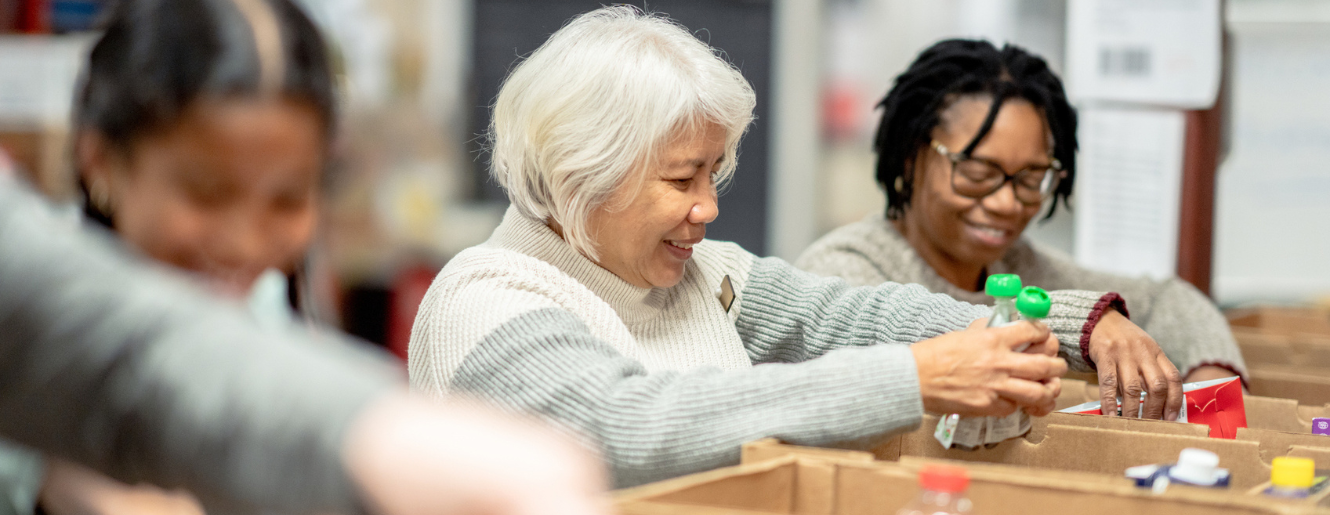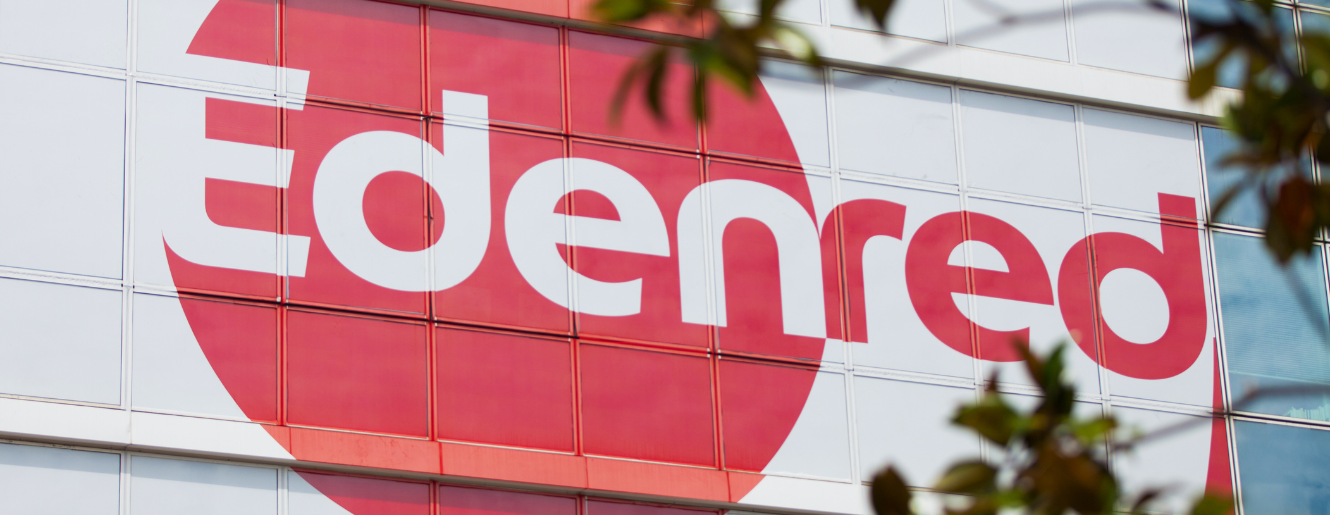As a proud partner of The Felix Project, Edenred’s Andy Philpott is excited to catch up with the charity’s CEO for an update on their work to eradicate food poverty and food waste across the capital.
What does the Felix project do?
On meeting Charlotte, you instantly get a sense of what drives her. Wearing a fluorescent yellow safety jacket, she’s dressed to roll her sleeves up and get stuck in at The Felix project’s food depot and kitchen. Listening to her talk about her work with such passion and knowledge it’s easy to see why so many businesses are eager to get involved.
Last year Charlotte joined the Felix Project as CEO, a charity driving the eradication of food waste and food poverty across London. Charlotte tells Andy Philpott about the challenges and rewards of the job and why de-stigmatising the mental and financial impact of the cost-of-living crisis is the most important thing HR can do to support employees.
Charlotte what attracted you to the role?
“After 15 years of extensive travel as the chief executive of various charities, my young family told me I had to take a London-based job to be at home more. As a proud Londoner I jumped at the opportunity to combine my two passions – food sustainability with trying to drive equity across London.”
What are the hardest and most rewarding aspects of your job?
“I’ll start with the most rewarding - the people. Whether that’s trustees, partners, volunteers. All have the magic dust sprinkled over them of a strong sense of community. Their love, commitment and passion deliver the impact Felix makes to thousands of Londoners and the environment.
These are the toughest conditions we have worked in. As energy and operating costs skyrocket, we’ve never seen greater demand for our services. We simply don’t have the resources to help everyone that needs our services. We currently have a wait list of around 600 community partners, many of whom are primary schools whose pupils are not getting enough to eat.”
What does a good day look like?
“Working closely with our partners is so enriching. Our ability to feed people depends on the surplus food donations we receive from our supermarket and restaurant partners, but our partners do so much more than donate food and provide volunteers to pack and deliver food. They also support every aspect of running the charity as a business.
Whenever I’m at our London depot I eat lunch in our kitchen where we prepare hot meals for volunteers. I might sit down to eat with the CEO from an investment bank on one side of me and a recipient on universal credit on the other. The kitchen is a melting pot that brings people from all walks of life and circumstances together which has a huge impact on all parties.”
What challenges do you face this winter?
“We rely on a steady supply of volunteers to collect, package and deliver food across London. Due to the cost-of-living, our traditional pool of volunteers is drying up as people take on second jobs to cope with rising prices and bills. We need a steady stream of regular volunteers to keep operations running. I’d love to hear from any organisations that can provide more people on a regular basis.
At the same time the number of people approaching us for help has soared. Pre-pandemic our clients were homeless or the most vulnerable people on the margins of society. Today, many of our clients are in work.
A recent YouGov survey found four in ten low wage earners in London can’t afford to turn their ovens on. Of that group, almost half are parents who are skipping meals in order to feed their children. One in ten have less than £3 a day to feed themselves.
Yesterday I was speaking with people that live in the shadow of Grenfell Towers who are in work but struggling to put food on the table. They explained that every penny of their income is used on costs they have no choice but to pay – transport to work and rent or mortgage. Food has become the only elastic part of their outgoings that they can cut.”
What innovations have you introduced to adapt support to the energy crisis?
“In response to a significant number of our organisations telling us that people can’t afford to heat food we’ve extended our kitchen opening hours to include a third evening shift.
I’m excited to announce that a new pop-up restaurant, “Felix’s Table”, will run for three months. We’re taking over a restaurant in Haymarket. Top chefs will visit to cook top notch meals from surplus food. Diners eat for free and will include a mix of clients plus employees from whichever corporate sponsor hosts that evening.”
How does Felix anticipate demand will unfold over 2023?
“In addition to the 1000 plus community organisations we support we have a wait list of 600 more. One of the largest groups on the wait list are primary schools.
People have been building up debt to pay for food and energy that have shot up in price. Even if the economy starts to improve this year, it will be some time before vulnerable Londoners see an improvement in their personal finances. Demand for our services will continue to be huge and we have to find ways to meet increased operating costs ourselves.
We really appreciate and will continue to need the wide range of help our corporate sponsors offer. Not just volunteers to feed people but the wide range of business support services each offers alongside funding.”
Tell me about your empty plate campaign and campaign focus for 2023
“Empty plate is our emergency appeal for Londoners to help feed fellow Londoners throughout the winter. We’ve had an amazing response from businesses looking to support both our environmental and social goals.”
What message would you give to employers to help them better support employees that might be experiencing in-work poverty?
“De-stigmatise the issue by talking openly about it at work. The cost-of-living crisis is impacting people in different ways. The rise in mortgage payments means people you wouldn’t traditionally think as needing support may be in need of help. Have open and honest conversations at work and provide a safe, confidential space for employees to talk to HR.
Reframe accepting surplus food from receiving help to helping to save the planet. Food waste contributes to climate change. It’s empowering for our clients to feel they are making a positive contribution to curbing food waste. Language is important we prefer the term “food pantry” to “foodbank”.
A massive thank you from Felix for the many ways Edenred supports our work.



